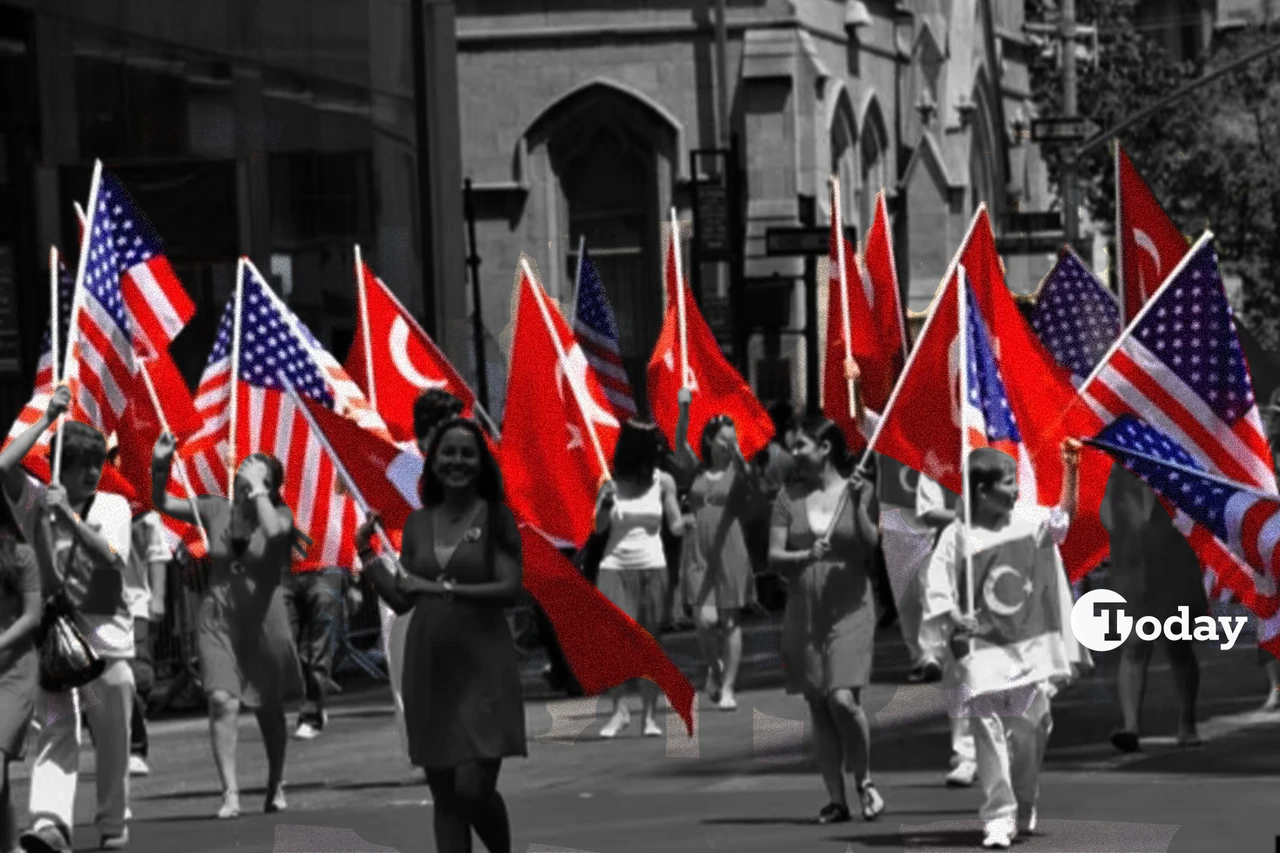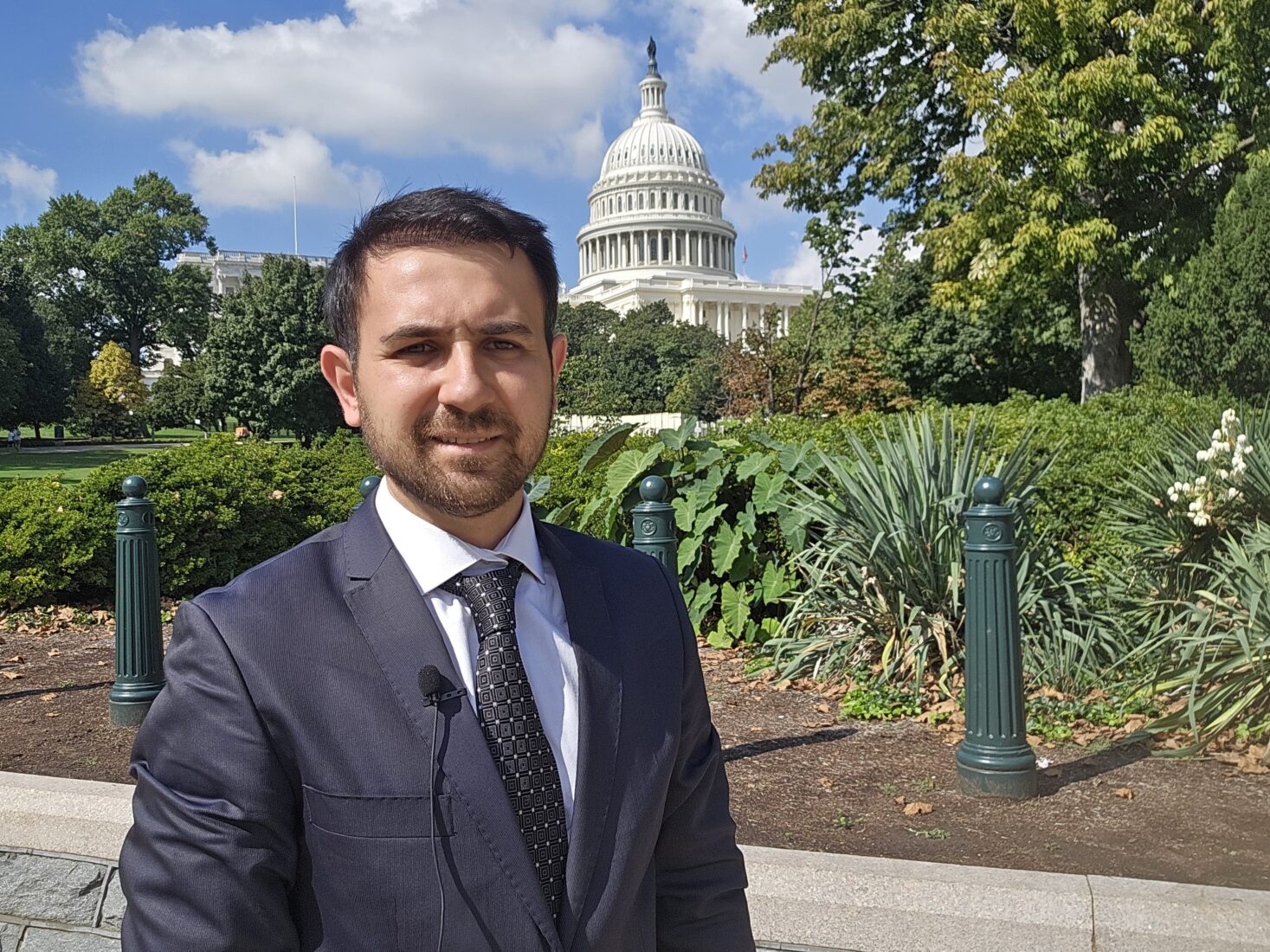How Turkish-American minority in US may vote?

The United States election on Tuesday, November 5, will elect the president, vice president, members of the house of representatives, 34 seats in congress, and state and local elections across 13 states.
Washington D.C. based Turkish journalist, Anil Sural, commented to Türkiye Today that, “The U.S. states with the largest Turkish populations are New York, New Jersey, California, Texas, Florida, and the area around Washington, D.C.”
According to the U.S. Census Bureau, there are 350,000 Turks living in the U.S. However, if we include recent undocumented arrivals and those who haven’t registered their status with the consulate, this number easily reaches around 500,000.
Here is a look at the small yet vibrant and growing Turkish American community, their concerns, and how they could be voting in 2024.
Turkish American community voting Red?
Speaking to Türkiye Today, Dr. Isil Acehan, an expert on the history of the Turkish American community noted, “Many in the Turkish American community may vote for Trump, many of those who’ve I’ve spoken to in the community speak so.”
Dr. Acehan highlights that President Joe Biden’s tenure was marked with the recognition of the 1915 events as the ‘Armenian genocide’ and that he was “close to anti-Turkish circles and anti-Türkiye lobbies.”
Biden has been interpreted as being an anti-Türkiye politician, affecting American voters with ties back to the Thrace and Anatolia. Democrat nominee Kamala Harris is seen as a continuation of those policies.
On the other hand, Dr. Acehan argued that even though “Trump had a ‘anti-Muslim’ stance, the ‘Muslim ban’, he did not do anything bad to Türkiye. Trump encouraged Türkiye-U.S. business to strengthen.” This marked a policy departure from the Biden administration.
Sural, meanwhile, ties the turn towards Trump being witnessed across large segments, “It’s not just the Turks. During Biden’s term, the increase in undocumented immigration across the border and the declining economy have led to a significant rise in interest in Trump among a broad range of groups, from Hispanics to Muslims, compared to previous Republican presidents.”
Turkish Americans running for office
The former president of the Turkish Coalition of America (TCA), G. Lincoln McCurdy revealed to Türkiye Today that there are two Turkish-Americans running for public office in the upcoming American election.
They include Timur Ender running for Portland City Council District 1, and Zeyna Pruzhanovsky for the Chandler Unified School District Board in Arizona. Both candidates are running on a nonpartisan ticket.
This brings the total number of Turkish-Americans running for office in U.S. to a total of four in 2024.
“In 2024, there were four Turkish Americans running for elected office. Two, however, lost their primaries. Derya Taskin, Democratic Candidate for Passaic County Commission in New Jersey, lost in the Democratic primary in June. (And) Ajlan Kurdoglu, Candidate (nonpartisan) for Chandler (Arizona) City Council, lost in the primary in July.”
McCurdy concluded that, “As of today, there have been only 14 Turkish-Americans elected to public office. Hopefully, the number will increase tomorrow.”
Limited impact in the outcome of 2024 elections
Commenting on the Turkish community in America, Dr. Acehan stated that Turks first arrived in the late Ottoman period of the early 1900s. They were at the time a qualified workforce comprised of engineers and physicians.
After a brief pause in 1920s with immigration quotas placed, another wave of Turks came in the 1950s and 1960s to mainly work blue collared factory jobs in the automaking industry of the Midwest.

The number of Turkish-Americans are now potentially half a million, nevertheless, Anil specified that, “Among the seven swing states—Arizona, Georgia, Michigan, Nevada, North Carolina, Pennsylvania, and Wisconsin—the number of Turks is relatively low. Among Muslims, only Michigan has a significant enough population to potentially sway the outcome. While I don’t know the exact number of Turkish voters, it is relatively small and unlikely to influence election outcomes.”



